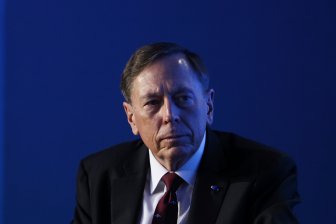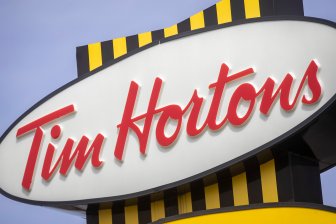Achi news desk-
Newfoundland and Labrador Liberal Premier Andrew Fury is calling on Prime Minister Justin Trudeau to call an “emergency meeting of leaders from across the country” to talk about possible alternatives to the federal carbon price rising to $80 a tonne.
Asked about the meeting call, Trudeau said the provinces have always had the ability to come up with their own alternative plans that include the minimum carbon price.
“So all those prime ministers who are busy complaining about the cost of pollution but not presenting a concrete alternative that they think would be better for their communities are just playing politics,” Trudeau said at a news conference in Scarborough, Ont.
“Each province has the opportunity to come up with their own plan as long as they fight climate change at the same level that we ask all other Canadians to do. That’s what a federal stopgap is. But we don’t see detailed plans from the premiers on this matter. They’d rather try to complain about it and make hay out of it political”.
Trudeau concluded by saying the carbon price is expected to contribute to one-third of Canada’s emissions reductions by 2030 and tests of the rebates are due to come out on April 15.
The annual increase went into effect on Monday, rising from $65 per ton. At the pumps, this translates to the price of carbon on gas rising from about $0.14 to almost $0.18.
“The threat of climate change is pressing. There is broad agreement that decarbonization is necessary; there are no serious counter-arguments left. The only question is how best to do it at this point. The realization of our common climate goals depends on an orderly green transition that brings society on its side instead of provoking resistance,” Fury . Written in a letter published in X.
“I am grateful that you expressed the federal government’s openness to re-examining provincial and territorial carbon pricing solutions, yet it remains a federal instrument. We need a constructive approach to decarbonizing our environment without placing the burden on individual families who simply do not have viable alternative options.”
Great news from Canada and around the world delivered to your email, as it happens.
Fury, along with other prime ministers, called for at least an end to immigration, citing the challenges of the cost of living. This includes the premiers of Alberta, Saskatchewan, Ontario, New Brunswick and Nova Scotia.

In response, Trudeau wrote to rival prime ministers, saying they are welcome to come up with alternative plans, like those in British Columbia, Quebec and the Northwest Territories, that meet the federal minimum price.
In a speech in Nanaimo, B.C., Conservative Leader Pierre Poiliber accused Trudeau of threatening provinces with planning carbon pricing plans.
“Right now, Justin Trudeau has threatened BC.
“By removing this threat, British Columbians can elect a sound provincial government that can exempt the tax here in B.C.,” Poiliver said.
The BC Liberals, now known as BC United, first introduced its carbon price in 2008, 11 years before the federal fuel charge took effect.
British Columbians will head to the polls later this year, where an election must be held before October 19.
Asked how he would reduce emissions, Poilever said his government would make alternatives such as small modular reactors, tidal power, and carbon capture and hydroelectric dams less expensive.
“In other words, when Trudeau is proposing taxes, I’m proposing technology. Where he’s proposing to raise the cost of traditional energy that we still need, I’m proposing to lower the cost of alternatives,” Poiliber said.
Aside from expediting the approvals of the projects, Feuilbar did not go into detail about how exactly he would lower the costs of these alternatives.
Manitoba Premier Wab Kino says he plans to introduce a new carbon pricing program in the province. Manitoba is the only province where both federal industrial carbon and fuel prices apply. The Yukon and Nunavut are also under the double federal price.
When asked why the prime minister believes the Liberal and NPP premiers in the case of Fury and Keeno do not support a carbon price, Trudeau did not answer directly, instead posing his own question.
“I think the question is why are so many conservative politicians and provincial premiers opposing a program that is extraordinarily powerful in fighting climate change and spurring innovation and putting more money back into the pockets of Canadians? We hear premiers across the country are concerned about the cost of living for their citizens, yet they want to repeal ‘Kim that leaves more money in people’s pockets,’ Trudeau said.
Trudeau and his ministers insisted that eight out of 10 households where the federal gas price is in place receive more quarterly rebates than they pay. In Newfoundland, for example, the average discount for a family of four is $298 every three months.
This financial breakdown is backed up by the Parliamentary Budget Officer’s report from March 2023, but the same report does say that most households see greater net costs when wider economic factors, such as loss of employment and investment income, are included.
The report states that the alternative is based on no other climate policy, and states that any action taken involves a price.
Still, Premier Fury and others say their constituents are feeling the growing fiscal pinch associated with the rising cost of pollution. The purpose of the charge is to change behaviours, but Fury argues that this is not possible in some circumstances.
“Today, a gas-powered truck drives fishing gear to a dock in a rural Newfoundland and Labrador community. After April 1, there will be another carbon tax, but that same truck still has to drive fishing gear to the dock. No alternatives are available. So, the key intent of this policy, to reduce emissions, Unreachable at this point,” Fury wrote.
A recent report from the Canadian Climate Institute estimates that the federal fuel charge accounts for eight to 14 percent of Canada’s emissions reductions. The carbon price on industrial emitters, which most prime ministers ignore, is estimated to be responsible for 20 to 48 percent of emissions reductions.



